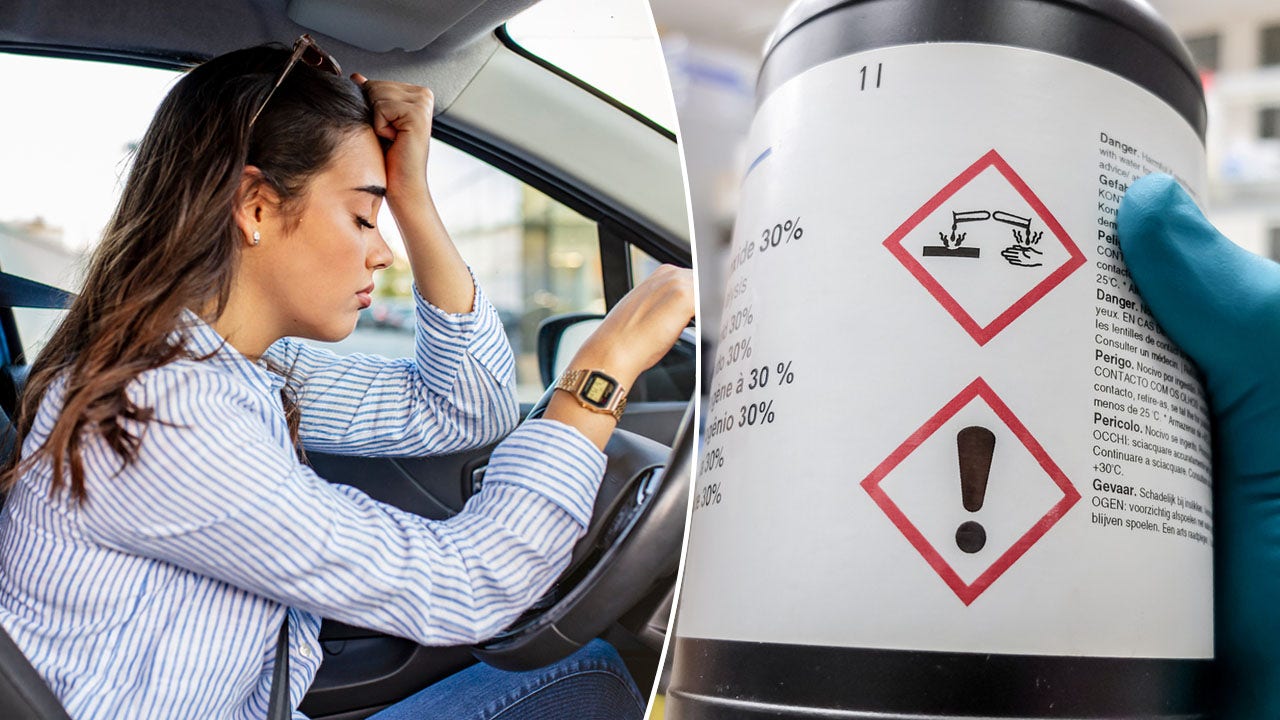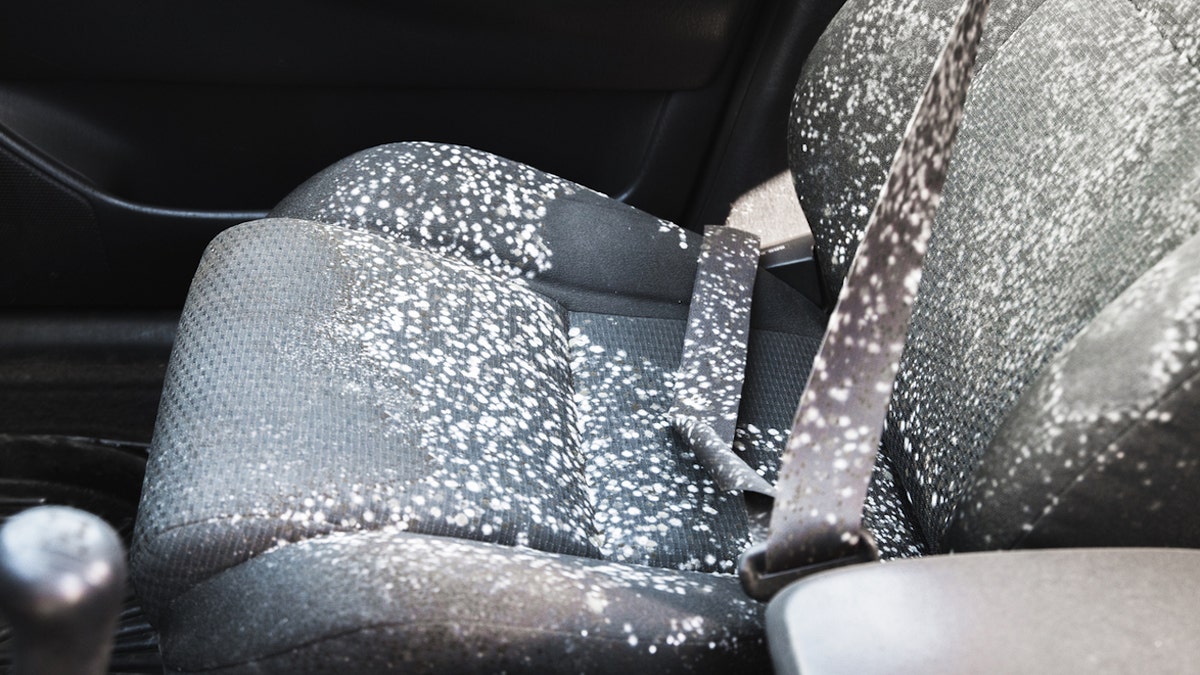Health
CDC likely to recommend annual COVID booster shot, director says

The new director of the U.S. Centers for Disease Control and Prevention said Thursday that her agency would likely come out with guidance in the fall that Americans should get an annual COVID-19 booster shot.
“We’re just on the precipice of that, so I don’t want to get ahead of where our scientists are here and doing that evaluation work, but yes we anticipate that COVID will become similar to flu shots, where it is going to be you get your annual flu shot, and you get your annual COVID shot,” Dr. Mandy Cohen told Spectrum News.
“We’re not quite there yet, but stay tuned,” she added. “I think within the next couple of weeks, month we’re going to hear more from our experts on COVID shots.”
Spectrum News said that the agency is finalizing the recommendation and is expected to announce it in early September.
COVID AIR MONITOR FROM SCIENTISTS CAN DETECT VIRUS IN INDOOR SETTINGS WITHIN 5 MINUTES
Dr. Mandy Cohen, secretary of the state Department of Health and Human Services, speaks during a briefing on the coronavirus pandemic at the Emergency Operations Center in Raleigh, North Carolina, on May 26, 2020. (Ethan Hyman/The Raleigh News & Observer/Tribune News Service via Getty Images)
Cohen also addressed public trust in the agency since the beginning of the COVID-19 pandemic.
She said that “folks have been very clear that the CDC did lose trust” when asked if the CDC could have taken different action.
“There were some early places where the CDC didn’t perform and execute in the way they needed to,” Cohen said, noting that she is worried about vaccine distrust.
“I’m very worried about parents not vaccinating kids,” she said. “I got my kids vaccinated from the circulating viruses. There’s plenty of other things that are hard as parents that we can’t do. This is one we can do to protect our kids.”
DOCTOR WHO HEADED NAVAJO NATION COVID RESPONSE TAPPED TO HEAD MAINE CDC

Signage stands outside the Centers for Disease Control and Prevention headquarters in Atlanta on Saturday, March 14, 2020. (Elijah Nouvelage/Bloomberg via Getty Images)
Going forward, the leader said she plans to focus on transparency and building relations with politicians, health officials and the public.
“Just like we have a military to protect us here and around the world, we need a CDC that can protect us,” Cohen said.
“We can’t see those cuts and have the national security assets we need here at the CDC,” she added.
House Republicans are aiming to make significant cuts to the agency’s funding.

Dr. Mandy Cohen, COO and chief of staff of the Centers for Medicare and Medicaid, attends a House Ways and Means Committee hearing on Capitol Hill Nov. 3, 2015 in Washington, D.C. The committee was hearing testimony on the State of The Affordable Care Act’s Consumer Operated and Oriented Plan Program. (Mark Wilson/Getty Images)
Cohen wants the CDC to be considered a “trusted partner” looking out for families and communities.
Cohen formerly served as North Carolina’s Health Secretary and Chief Operating Officer and Chief of Staff at the Centers for Medicare and Medicaid Services during the Obama administration.
GOP lawmakers wrote a letter in June urging President Biden to withdraw his appointee.
“Dr. Cohen is unfit for the position,” the lawmakers asserted. “Throughout her career, Dr. Cohen has politicized science, disregarded civil liberties, and spread misinformation about the efficacy and necessity of COVID vaccinations and the necessity of masks during her time as the Secretary of the North Carolina Health and Human Services.”
Fox News’ Greg Wehner, Hanna Panreck and Houston Keene contributed to this report.

Health
Introducing Our Product Reviews Team, and How We Review | Woman's World

Sign Up
Create a free account to access exclusive content, play games, solve puzzles, test your pop-culture knowledge and receive special offers.
Already have an account? Login
Forgot your password?
Get back to the Sign In
Use left and right arrow keys to navigate between menu items.
Use escape to exit the menu.
Health
What You Should Know About the Military Diet: Experts Weigh In | Woman's World

Sign Up
Create a free account to access exclusive content, play games, solve puzzles, test your pop-culture knowledge and receive special offers.
Already have an account? Login
Forgot your password?
Get back to the Sign In
Use left and right arrow keys to navigate between menu items.
Use escape to exit the menu.
Health
Could your car make you sick? Study highlights potentially cancerous toxins in vehicles

Americans may be breathing in cancer-causing chemicals while driving, recent research suggests.
A study published in the journal Environmental Science & Technology has sparked discussions about the potentially harmful toxins that could be lurking in the cabins of vehicles.
“Certainly the indoor air quality can cause health symptoms,” Dr. Ken Speath, M.D., the division chief and medical director for occupational and environmental medicine at Northwell Health on Long Island, New York, told Fox News Digital.
‘FOREVER CHEMICALS’ FOUND IN US DRINKING WATER, MAP SHOWS ‘HOT SPOTS’ OF HIGHEST LEVELS
It is important to be mindful of what you’re breathing in at home, at the office, at school and even in cars, according to Speath, who was not involved in the study.
“There can be situations where levels of harmful chemicals get high enough to potentially cause health harms,” he said.
Americans may be breathing in cancer-causing chemicals while they are driving, recent research suggests. A study published in the journal Environmental Science & Technology has sparked many discussions. (iStock)
“A car is a closed small space — so whatever is in the air is certainly going to be breathed in.”
Research reveals ‘harmful chemicals’
The peer-reviewed study looked at 101 owned vehicles in the U.S., model year 2015 or newer.
The researchers concluded that harmful flame-retardant chemicals — including those suspected of potentially causing cancer and some neurological issues — may be polluting the air inside vehicles.
DRIVING DANGERS: 9 TOP DISTRACTIONS THAT CONTRIBUTE TO ACCIDENTS, ACCORDING TO EXPERTS
“Flame retardant chemicals, which are intentionally added to vehicle interiors to meet flammability standards, are released into the cabin air from the materials to which they were applied,” lead author Rebecca Hoehn, a scientist at Duke University, told Fox News Digital.
“People in these vehicles may be exposed to these chemicals.”
Seat foam was the only material the researchers measured, Hoehn said, but other interior materials could also contain the chemicals.

The researchers concluded that harmful flame-retardant chemicals — including those suspected of potentially causing cancer and some neurological issues — may be polluting the air inside vehicles. (iStock)
“Considering the average driver spends about an hour in the car every day, this is a significant public health issue,” Hoehn warned.
“It’s particularly concerning for drivers with longer commutes, as well as child passengers, who breathe more air pound for pound than adults.”
The chemicals detected in the car cabins included a flame retardant called tris (1-chloro-isopropyl) phosphate (TCIPP), which is currently being investigated as a potential carcinogen by the U.S. National Toxicology Program.
“Considering the average driver spends about an hour in the car every day, this is a significant public health issue.”
Other flame retardants — tris (1, 3-dichloro-2-propyl) phosphate (TDCIPP) and tris (2-chloroethyl) phosphate (TCEP) — were also detected.
These are “two Californian Proposition 65 carcinogens linked to neurological and reproductive harms,” according to a press release.
Higher concentrations of the flame retardants were found during warmer weather.
“We found that the same cars, sampled in both winter and summer, had higher concentrations of flame retardants in the cabin air during the warm summer months,” Hoehn told Fox News Digital.

Flame retardants are added to vehicles to meet the National Highway Traffic Safety Administration Federal Motor Vehicle Safety Standard, which mandated their use in the 1970s. (iStock)
Flame retardants are added to vehicles to meet the National Highway Traffic Safety Administration Federal Motor Vehicle Safety Standard (FMVSS 302), which mandated their use in the 1970s, the release stated.
Flame retardants have been the “focus of concern for some time,” Speath told Fox News Digital.
More information is needed to determine the health risks these chemicals pose in humans, he said.
THESE MEDICATIONS COULD MAKE DRIVING DANGEROUS, THE FDA WARNS
“A number of these have been demonstrated in studies to have health harms in animals,” he said.
“That doesn’t necessarily mean that would be true for humans, but it raises that possibility, so we need to study these chemicals more in relation to their effects on humans.”

Higher concentrations of the flame retardants were found during warmer weather, the researchers said. (iStock)
Emanuela Taioli, M.D., PhD, the director of the Institute for Translational Epidemiology at Icahn School of Medicine at Mount Sinai in New York City, was also not part of the study, but shared her reactions.
“This is a very relevant finding, since it may prompt changes in cars’ upholstery, as well as in other parts of the car where there is foam,” she told Fox News Digital via email.
“We also want to know more about this finding and monitor whether it is replicated by other investigators.”
Other sources of toxins
Stephen Showalter, a home inspector and indoor environmental air consultant with Showalter Property Consultants in Maryland, said he typically interviews clients about their history of illness, then tests for potential sources of sickness in buildings, cars, RVs and boats.
Mold is a common culprit when it comes to health issues triggered by one’s environment, he said in an interview with Fox News Digital.
TOXIC CHEMICAL POISONING: HAVE YOU BEEN AFFECTED? HOW TO KNOW
Dr. Daniel Johns, a member of the International Society of Environmentally Acquired Illnesses and a chiropractor who practices in Annapolis, Maryland, echoed Showalter’s concerns about mold-related health issues.
Johns also cautioned that cars can be a daily source of mold exposure.
“Any water that leaks from a window, sunroof or convertible can get into the carpet and cause mold growth,” he said during an interview with Fox News Digital.

Mold is a common culprit when it comes to health issues triggered by one’s environment, according to an environmental expert. (iStock)
“Mold can start growing on a wet surface within 24 to 48 hours.”
For families with small children, spilled sippy cups could play a role when it comes to mold in cars, Johns warned.
“The water seeps into the upholstery and doesn’t get noticed or properly dried out, and the whole seat can become moldy,” he said.
“Mold can start growing on a wet surface within 24 to 48 hours.”
“Every time you sit on the seat, it releases a mold spore cloud into the car. Once that happens, you can’t clean it away. The upholstery must be removed and replaced.”
The impact of these potentially harmful pollutants can vary from one person to the next, experts told Fox News Digital.

For families with small children, spilled sippy cups could play a role when it comes to mold in cars, an expert warned. (Kids and Car Safety)
People metabolize chemicals and toxins in different ways, according to Taioli.
“Metabolism happens through enzymes that the body produces,” he said.
“Each of us has a different genetic profile that defines our metabolic capacity. As a consequence, the same amount of toxin may be metabolized better/faster by some, and worse/slower by others.”
Tips for ensuring safe interiors
While further research on car-borne chemicals is needed, experts say people can take measures to limit exposure.
“People may be able to reduce their exposure by ventilating their cars,” Hoehn advised.
“For example, rolling down the windows to let out contaminated air, or pulling in fresh air with climate control systems, should reduce concentrations.
“Ultimately, reducing the amount of flame retardants added to vehicles in the first place would provide the greatest reduction in exposure risk.”
Controlling your vehicle’s cabin temperature may also reduce exposure, she added.
“Parking in a garage or shade instead of full sun may reduce the cabin temperature and limit the extent of flame retardant release,” Hoehn said.
The researchers also called for action from regulatory agencies and vehicle manufacturers.
CLICK HERE TO SIGN UP FOR OUR HEALTH NEWSLETTER
“Ultimately, reducing the amount of flame retardants added to vehicles in the first place would provide the greatest reduction in exposure risk,” Hoehn noted.
“If flammability standards for vehicles could be revised to meet fire safety guidelines without the use of added flame retardants, risk of flame retardant exposure from personal vehicles could be greatly reduced.”

To prevent mold in a vehicle, experts recommend keeping your windows up when it rains or snows to prevent water from permeating the carpet or fabric. (iStock)
Having your car’s air quality and surfaces tested is one way to reduce the risk of exposure to allergens, toxins and chemicals, experts told Fox News Digital.
To prevent mold in a vehicle, Showalter recommends keeping your windows up when it rains or snows to prevent water from permeating the carpet or fabric.
He also cautioned about leaky air conditioners, which can foster mold growth in vehicles, and about leaving wet items in the car.
Lastly, before buying a used car, he said it is important to check the vehicle’s history to make sure it doesn’t have flood damage, which can lead to mold and other issues.
If you think you are experiencing illness due to chemical exposure in your car, home or office, it’s best to see a health care professional to discuss your symptoms.
Fox News Digital reached out to several major car companies for comment.
For more Health articles, visit www.foxnews.com/health.
-

 World1 week ago
World1 week agoIndia Lok Sabha election 2024 Phase 4: Who votes and what’s at stake?
-

 News1 week ago
News1 week agoSkeletal remains found almost 40 years ago identified as woman who disappeared in 1968
-

 Politics1 week ago
Politics1 week agoUS Border Patrol agents come under fire in 'use of force' while working southern border
-

 Politics1 week ago
Politics1 week agoTales from the trail: The blue states Trump eyes to turn red in November
-

 World1 week ago
World1 week agoBorrell: Spain, Ireland and others could recognise Palestine on 21 May
-

 World1 week ago
World1 week agoCatalans vote in crucial regional election for the separatist movement
-

 World1 week ago
World1 week agoEurope matters to consumers, and so does your vote
-

 Politics1 week ago
Politics1 week agoNorth Dakota gov, former presidential candidate Doug Burgum front and center at Trump New Jersey rally




















